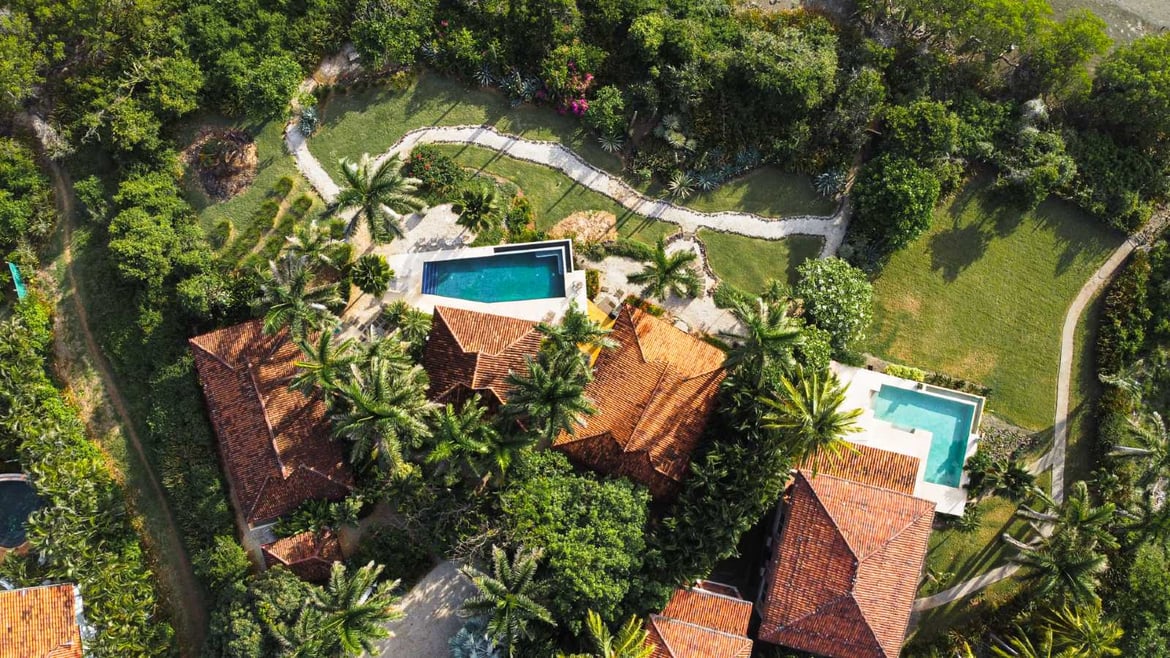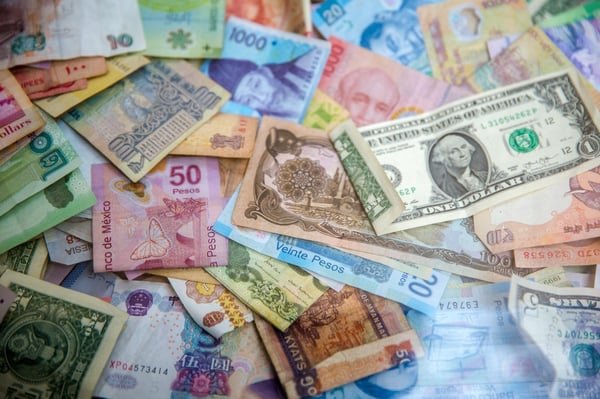“The best time to plant a tree was 20 years ago,” says the Chinese proverb. “The second best time is now.” That wisdom certainly applies to United States citizens looking for overseas real estate. It may no longer be possible to snap up a beach in Belize or a chateau in rural France for five figures, but there are still some attractive opportunities to be seized with an international mortgage.
Most American investors will be cashing in on domestic house prices that have risen by over 50% in the last five years on average, or taking advantage of interest rates that are still relatively low. However, the process and conditions for obtaining an international mortgage - one that is secured against a property in a foreign country - are more rigorous and restrictive. If you're hoping to move to one of the cheapest places in the world for expats, or one with the opportunity for jobs for Americans, here's what you need to know about international mortgage lenders.
Planning on buying property overseas? Avoid hefty markups on exchange rates when buying and selling overseas real estate with CurrencyFair's low-margin FX rates.
Types of overseas property to buy with an international mortgage
Depending on whether you intend to sell up and start a new life overseas, or remain in the United States and invest in a second home abroad, the terms of your international mortgage will differ.
Owner-occupied: The first step towards owning your dream home overseas is usually selling your property in the United States, either to cover a cash purchase or a sizeable downpayment. Securing financing from a US lender will be difficult if you're planning to emigrate permanently and can't offer a large (30% or more) downpayment. In most cases, you'll need to secure financing in the country you intend to live in.
Investment: Buying a property overseas to let or turn into an Airbnb can be a lucrative investment. You can either apply for a Home Equity Loan or Line of Credit (HELOC), which are secured against your home or invest retirement funds in overseas assets using a self-directed individual retirement account (IRA). Beware, however, that you can't live in it while your retirement accounts are invested.
Land: you'll still find plenty of countries where land is comparatively cheap, from Central America to Eastern Europe, but watch out for stamp duty, which can be as much as 10% of sale value, and get local, professional advice on permits and zoning.
Development: developer financing is often interest-free, making investments in new condominium or residential projects very attractive. You'll usually be able to access lower interest rates and can make staggered payments to spread the cost.
Tax implications of buying overseas property
Because American citizens are liable for tax on all worldwide income, and must continue to file returns with the Internal Revenue Service (IRS), there are some tax quirks to observe.
Rental income, whether it's from an overseas property while you're living in the United States, or from property back home while you're an expat, is taxable. US citizens can factor in depreciation on their tax return, as well as the expense of travel between countries, however.
Tax will be due on rental income or any proceeds from a sale of overseas property. Your tax liability will differ depending on whether the property is a primary residence or secondary home, and whether you are a permanent resident overseas or not. If you have lived in an overseas property for at least two of the last five years, any capital gains from sales up to $250,000 can be excluded. If not, gains will be taxed at capital gains rates.
Once you are living permanently overseas, your tax liability will transfer to your country of residence. You will still have to file an annual report with the IRS but will not be subject to double taxation thanks to Foreign Earned Income Exclusion (FEIE).
The quirks of international tax are nuanced and you should use a professional and licensed tax adviser to understand your own circumstances. If you do need to pay tax abroad, CurrencyFair is generally up to eight times cheaper than the banks for international money transfers.
Main international mortgage providers
As a general rule, US banks do not generally offer international mortgages to American citizens. Those that do typically cover selected countries only. The following are some of the best-known providers but are presented without any notion of endorsement:
HSBC International: offers international mortgages for Australia, Canada, mainland China, France, Hong Kong SAR, India, Malaysia, New Zealand, Singapore, UAE, and the UK.
Barclays International: offers fixed-rate and tracker rate mortgages to international banking clients only.
Standard Chartered International: restricted to selected countries in Asia, Europe and the Middle East.
Because of the limited availability of domestic lenders, most buyers will use an international mortgage broker instead. Again, the following examples are made without any recommendations attached:
Enness Global: is geared more toward luxury properties for high net worth individuals.
Kredium: cover North America, South America, Europe and Asia.
America Mortgages: popular with American expats living and working abroad who want to buy back in the US.
In-country mortgages
Usually you'll only be able to get a mortgage in a country if you're a permanent resident. Typically, you'll pay a higher interest rate and will need to stump up a much higher down payment, as much as 50% of the property's value in some places.
A cash purchase is certainly an option but is perceived as risky for pre-construction developments since there is no guarantee you will get your money back if the project does not reach completion.
What you'll need to apply for an international mortgage
As with a mortgage application in the United States, you'll need a credit report, bank statements, and proof of income going back at least two or three years. Depending on the country, these documents may have to be notarised locally. In addition, you'll need:
-
Deposit: you can usually borrow up to 70% loan to value, and terms rarely exceed 30 years.
-
Local bank account: in some countries, you'll be required to convert your US dollars into local currency.
-
Residency permit: not all countries confer residency automatically. Make sure you satisfy the local residency requirements and obtain all necessary permits if you're planning to pursue expat life.
-
Life insurance: often, you'll be required to take a policy that makes the bank the beneficiary of any property assets. A potential snag is if you're too old to take out a life insurance policy in a country where it is mandatory to buy property.
Things that may be different
Buying overseas property without local expertise can be an insurmountable task, not least because there may be the following to navigate (perhaps in a foreign language too):
-
Local property taxes and fees.
-
Notary and legal costs.
-
Currency exchange rate costs.
Search for certified agencies and brokers in your chosen country who specialise in sales to US buyers.
Restricted areas
Some desirable hotspots place restrictions on foreign property ownership, posing a big barrier to obtaining an international mortgage. For the countries below, you'll usually have to circumvent restrictions by investing through a local agency or trust:
-
Foreigners aren't usually allowed to buy land or property in the Philippines but can buy in developments that are majority Filipino-owned.
-
You can buy in Malaysia, but proceeds from a property sale have to be kept in a Malaysian bank account
-
Foreigners can't own property in restricted zones in Mexico (near ocean or borders), or in Thailand, Vietnam and Greece.
Currency exchange rates are a serious issue when it comes to buying property overseas and securing an international mortgage, given the size of the sums involved. Before transferring any down payment or assets to an overseas account, check CurrencyFair. You should find that you can change your currency up to eight times cheaper than the rate offered by your bank, whether you need to transfer funds to buy a property or collect rent from an investment property abroad.
Planning on buying property overseas? Avoid hefty markups on exchange rates when buying and selling overseas real estate with CurrencyFair's low-margin FX rates.
This information is correct as of June 2022 This information is not to be relied on in making a decision with regard to an investment. We strongly recommend that you obtain independent financial advice before making any form of investment or significant financial transaction. This article is purely for general information purposes. Photo by Ralph (Ravi) Kayden on Unsplash.













